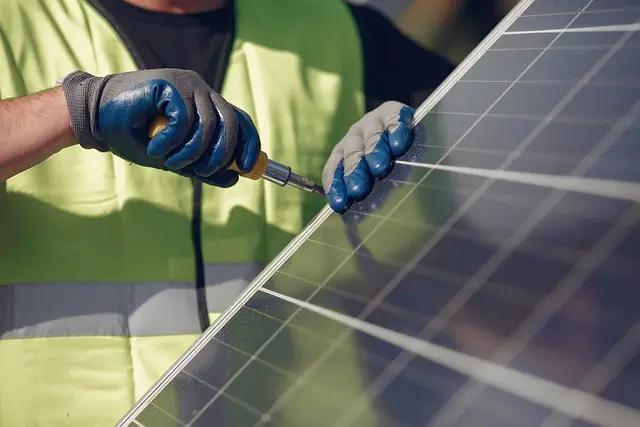The Benefits of Solar Power for Your Home
Solar power has become an increasingly popular option for homeowners looking to reduce their energy bills and decrease their environmental impact. With the advancements in solar panel technology, it has become more affordable and efficient to power your home with solar energy. By harnessing the power of the sun, homeowners can significantly reduce their dependence on traditional energy sources and save money in the long run.
Understanding How Solar Panels Work
Solar panels, also known as photovoltaic (PV) panels, are designed to convert sunlight into electricity. These panels are typically installed on the roof of a home, where they can capture the maximum amount of sunlight. The panels are made up of solar cells, which are made of semiconductor materials that generate electricity when exposed to sunlight. The electricity generated by the solar panels is then converted from direct current (DC) to alternating current (AC) by an inverter, making it suitable for powering the electrical systems in a home.
Assessing Your Home's Solar Potential
Before investing in solar panels, it's important to assess your home's solar potential. Factors such as the orientation and slope of your roof, the amount of shade your home receives, and the local climate can all impact the efficiency of your solar panels. You can work with a solar panel installer to conduct a site evaluation and determine the best placement for your solar panels. Additionally, you can use online tools and resources to estimate the solar potential of your home based on its location and other relevant factors.
Choosing the Right Solar Panels for Your Home
When it comes to choosing solar panels for your home, there are several factors to consider. The efficiency and durability of the panels, as well as the cost and warranty offered by the manufacturer, are all important considerations. Additionally, you'll need to decide whether you want monocrystalline or polycrystalline solar panels, and whether you want to invest in a solar panel system with integrated microinverters for maximum efficiency. Working with a reputable solar panel installer can help you navigate these decisions and choose the best option for your home.
Financing Your Solar Panel System
While the upfront cost of installing solar panels can be considerable, there are a variety of financing options available to help homeowners make the investment. Many state and federal government incentives and tax credits are available to offset the cost of installing solar panels. Additionally, there are various financing options such as solar loans, power purchase agreements, and solar leases that can help homeowners pay for their solar panel system over time. By taking advantage of these financing options, homeowners can make the switch to solar power without breaking the bank.
Installing and Maintaining Your Solar Panels
Once you've chosen your solar panels and obtained the necessary permits and approvals, it's time to install your solar panel system. It's important to work with a licensed and experienced solar panel installer to ensure that your panels are installed correctly and safely. After installation, you'll need to periodically clean and maintain your solar panels to ensure they continue to operate at peak efficiency. While solar panels generally require minimal maintenance, it's important to keep them free of debris and ensure that they are receiving adequate sunlight to maximize their output.
Enjoying the Benefits of Solar Power
Once your solar panel system is up and running, you can start reaping the benefits of solar power for your home. Not only will you be reducing your carbon footprint and contributing to a more sustainable future, but you'll also enjoy significant savings on your energy bills. With the right solar panel system, you can potentially eliminate your electricity bill altogether and even earn credits for excess energy produced by your solar panels. In the long run, solar power is a wise investment that will continue to pay off for years to come.
Conclusion
Solar power is a viable and cost-effective option for homeowners looking to power their homes with clean, renewable energy. With the right planning, investment, and maintenance, you can enjoy the many benefits of solar power for your home. By taking advantage of government incentives and financing options, you can make the switch to solar power without breaking the bank. With the increasing affordability of solar panels and the potential for long-term savings, now is a great time for homeowners to consider powering their homes with solar energy.

